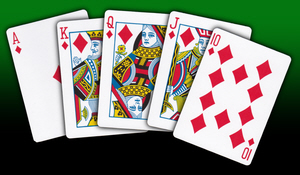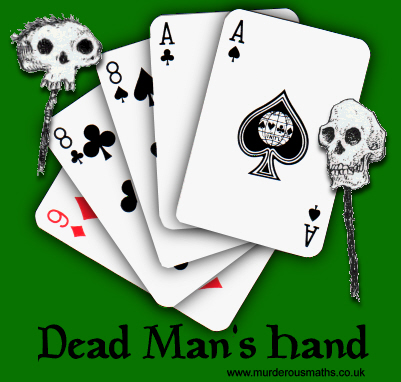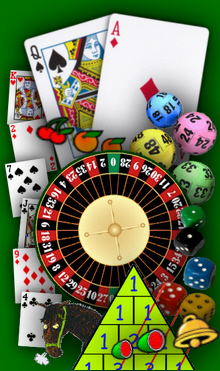The chances of different hands of playing cards
If you like BIG numbers then you'll love this!This page explains the chances of getting freak hands of playing cards in games such as bridge and poker. In bridge you are dealt 13 cards, in poker you usually only work with five cards. There's more about poker hands here.GAMES WITH 13 CARDS If you are dealt 13 cards, your chances of getting the following hands are:
If you have four players receiving 13 cards each, these are the chances involved:
DISTRIBUTION For a lot of games where you are dealt 13 cards (such as Bridge and Whist) it's handy to know how many cards you're likely to get in the same suit. You might think the most likely distribution is to have 3 suits with 3 cards each and one suit with 4 cards. (This is described as 4-3-3-3) However you might be surprised! Here's the distribution list starting with the most likely....
LONGEST SUIT Another way to think about distribution to consider how many cards are there likely to be in your longest suit. If you've got 13 cards, at least one suit MUST contain four cards. However it's actually more likely that your longest suit will have five cards! Here are the figures for the chances of how long your longest suit will be:
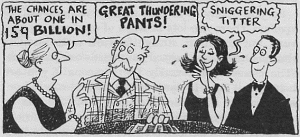 GAMES WITH FIVE CARDS Many games don't use the whole pack of cards at once, so the maths is very different. In poker, each player is dealt five cards. TEXAS HOLD 'EM Texas Hold 'Em is one of the most popular poker games. It's not just a matter of hoping to have the best hand, it's also a case of guessing what the other players might have. You might also have to guess if they are bluffing (i.e. betting when they've got nothing) and you can even try to bluff them. Here's what roughly what happens:
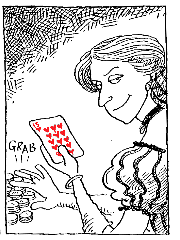
Quite often somebody wants to bet so much money that everybody else folds and he wins. In this case nobody gets to see anybody else's cards and the trouble is, you'll never be absolutely sure if the winner was bluffing or not! We can't give you any help in how to bet apart from to remind you that nobody ever ruined their life by betting with matches or counters, so stick to playing with those and keep your money safe. What is far more interesting to us is how you make your five card hand.
THE CHANCES OF DIFERENT POKER HANDS Poker games involve seeing what combinations you can get when you are dealt five cards. The maths involved can be pretty murderous, but here are the chances for the combinations people hope to see, stating with the best possible hand - the Royal Flush.
If you haven't even got a pair, then whoever has the highest card wins. The WORST hand you can get is 2-3-4-5-7 of mixed suits. Because the chances of a really good hand are quite small, a lot of poker games give you more than five cards, from which you can select which five cards you want to make the best combination. This lowers the odds of each hand, but they are still ranked in the same order as listed above e.g. a flush still beats two pairs. | ||||||
|
| ||||||
Craps - How to play, Chances and Payouts
Blackjack - Hit, Stand, Double Down or Split?
The Betting Guide - and how to work out the Bookie's profit!
The Roulette Wheel ... and how to worry the casino!
The One-Armed Bandit Slot Machine
|
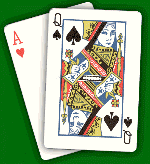
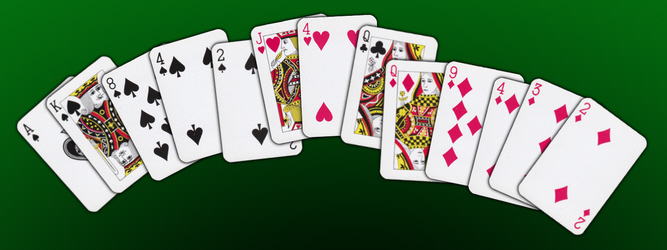
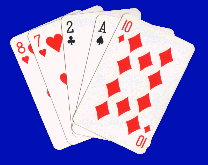
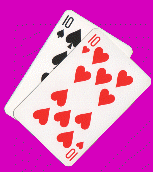
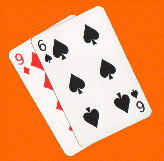 This player has got a SIX and a NINE. This looks disappointing, and most players would have thrown it away before the other cards were dealt onto the table. But it turns out to be very lucky because there is a SEVEN, EIGHT and TEN on the table. Therefore there is a five card straight leading up to the TEN. The player can feel very confident that this is the best hand. (In fact the only thing the other player could be holding to beat it is a nine and a jack. This would give a straight up to the Jack which is better.)
This player has got a SIX and a NINE. This looks disappointing, and most players would have thrown it away before the other cards were dealt onto the table. But it turns out to be very lucky because there is a SEVEN, EIGHT and TEN on the table. Therefore there is a five card straight leading up to the TEN. The player can feel very confident that this is the best hand. (In fact the only thing the other player could be holding to beat it is a nine and a jack. This would give a straight up to the Jack which is better.) 